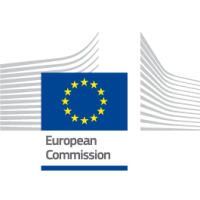
Implementing Impactful and Scalable Online Teacher Professional Development
The ongoing COVID-19 pandemic is forcing educators around the world to adapt and innovate their practices. Policy makers face a key challenge in how to effectively prepare and support large numbers of teachers to implement new teaching and learning approaches as quickly as possible. Teacher educators face a dual challenge: on the one hand they need to offer support to teachers in a quick and
Webinar information
Description
This event is part of the build up to the Third European Education Summit on 10 December, discussing the digital transformation of Europe’s education systems. The webinar will also launch a new research report exploring the impact of participation in online professional development courses on teacher practice and professional identity.
Since, 2016 the School Education Gateway Teacher Academy has developed a way of offering impactful and scalable online teacher professional development and continues to evolve through experience. This webinar will give participants a unique insight into key findings from the Teacher Academy and other European initiatives to support teacher educators and policy makers in the implementation of new and updated teacher professional development programmes organised online or in blended scenarios at large scale.
This webinar has ended but you can find the recording below:
Download the report “The Impact of Participation in Teacher Academy Online Courses on the Practice and Identity of Teachers” here.
Target audience
- Policy makers and agencies with a responsibility for teacher professional development
- Teacher educators and representatives of teacher education providers/institutions
- Researchers with an interest in teacher education
Agenda
| 14:00 | Welcome by Themis Christophidou - Director-General – Directorate-General "Education, Youth, Sport and Culture" |
| 14:10 | Panel Discussion: How do we design effective online professional development that meets the needs of teachers and other school staff? |
| 14:50 | Blended Teacher Professional Development in Schools – In Conversation with a Teacher Academy Pilot Teacher |
| 15:05 | Panel Discussion: How do we scale up impactful teacher professional development online? |
| 15:35 | Closing |
About the speakers
Additional information
-
Language:English
-
Target audience:Student TeacherTeacherTeacher Educator
-
Target audience country:
-
Target audience ISCED:Primary education (ISCED 1)Lower secondary education (ISCED 2)Upper secondary education (ISCED 3)











